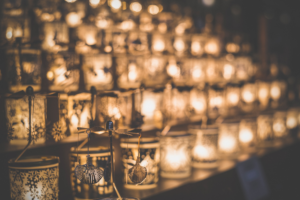
Image Courtesy Pexels
Sometimes when we’re dealing with a life-threatening illness or other forms of stress, it becomes difficult to take proper care of ourselves. We get so busy fighting the disease that we don’t see anything else. We look to medical treatment, medications, physical fitness and nutrition, all in an attempt to strengthen our bodies and minds to deal with what we’re facing. But let’s not forget, the spirit needs nourishment as well. Spiritual self-care is as important as physical self-care, and promotes health and healing for our bodies and our souls.
Let Go, and Let God:
Prayer is one of the strongest tools in our spiritual toolkit. When we open up and talk to God, we are admitting that our burdens are too heavy to bear on our own. We need help. Asking for that help can be a liberating and empowering experience. Prayer promotes acceptance, and acceptance promotes forgiveness, of ourselves, and of those around us. Prayer reminds us of how small we are in the cosmic plan, and helps us draw upon the strength of a loving deity to get us through difficult times.
From a scientific perspective, studies have shown that people who pray report experiencing a transcendence that helps them to cope with and find meaning in their medical situation, they subsequently reported better health outcomes than people who did not pray.
Listen To The Universe
It’s been said that while prayer is talking to God, meditation is listening for an answer. Whether or not you are a practicing member of a church, synagogue, or mosque, meditation provides numerous benefits for your life and your health. Studies show it lowers heart rate and respiration, and its practitioners are more resilient to stress.
When you’re meditating, you can empty your mind of the daily worries and fears that plague us all, and focus on listening to your own breathing, the sounds of the movement of the air around you. Focus on sensation, the smells in the room and the feel of the mat under your feet. If you’re a beginner, try using a guided meditation tape. For the most healthful impact, enroll in an outdoor class; there’s good evidence that exposure to natural green spaces promotes healing and boosts immune function.
A Community Of The Faithful
It can be hard to make time for regular religious observance when you’re dealing with rounds of chemo, but there are many good reasons to be involved in church. Churchgoers enjoy greater health than their secular peers. They experience fewer complications, recover more quickly, and require less pain medication.
This has special significance for cancer patients who manage their pain with drugs such as opioids. Becoming dependent on pain medications can lead to painful withdrawal symptoms and even addiction. People who are religious are less likely to become addicted, and those who do become addicted are less likely to relapse after recovery. Perhaps more important even than the medical benefits of a religious life are the social ones.
As a member of a larger faith community, the religious have access to a social safety net, and stronger social bonds. They are more likely to seek out medical help when they need it, and can call upon other people to help them with basic tasks and transportation issues. If they miss services, someone is likely to check in on them. This social engagement can make a big difference when a person is fighting a serious illness. From a statistical standpoint, people who are religiously active actually live seven years longer, on average, than those who are not practicing members of a religious community.
A healthy spiritual and religious life may have important implications for health outcomes when a person is fighting cancer. Religious belief and regular practice promote healing and help with pain management. Being able to draw upon a faith community and a sense of a higher power can give patients and survivors powerful emotional resources to continue the fight. A sense of the divine and a relationship with a loving God can aid in finding meaning in suffering, and even experiencing peace and acceptance in the midst of crisis.

